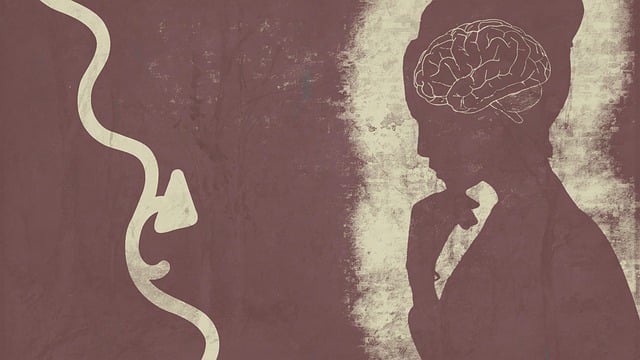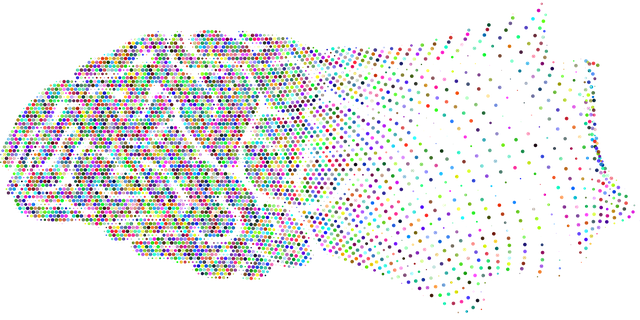Media portrayal of mental illness significantly influences public understanding, with accurate representations fostering empathy and encouraging help-seeking behaviors. Negative depictions, however, perpetuate stigma and shame. Balanced narratives featuring diverse experiences are crucial for a compassionate society prioritizing mental well-being. Aurora Bariatric Evaluations Therapy challenges stereotypes by offering nuanced, empathetic portrayals of body image disorders and related mental health conditions, integrating psychological assessments and tailored support. Media can dispel stereotypes through diverse storytelling, authentic lived experiences, and collaboration with professionals, shaping perception, fostering empathy, and advocating for better mental health systems like Aurora Bariatric. In the digital age, diverse representation in media normalizes mental health conversations and encourages engagement with initiatives offering tailored care.
Mental illness representation in media significantly influences public perception and understanding of mental health. This article explores strategies to challenge negative stereotypes and promote accurate depictions, drawing on a case study of Aurora Bariatric Evaluations Therapy. We examine how responsible media portrayal can foster empathy, reduce stigma, and drive positive change. By focusing on diversity and inclusion, we highlight the transformative power of media in shaping more compassionate communities.
- Understanding the Impact of Media Portrayal on Mental Health Perception
- Aurora Bariatric Evaluations Therapy: A Case Study in Sensitive Representation
- Strategies for Challenging Stereotypes and Promoting Accurate Depictions
- The Role of Diversity and Inclusion in Shaping Positive Change in Media
Understanding the Impact of Media Portrayal on Mental Health Perception

The media’s portrayal of mental illness significantly influences public perception and understanding of various conditions. Often, media narratives can either perpetuate harmful stereotypes or offer a glimmer of hope and awareness. When depicted accurately, stories of individuals overcoming mental health challenges through therapy, support groups, or self-care practices (such as those promoted by Aurora Bariatric Evaluations) can inspire empathy and encourage viewers to seek help. Conversely, negative representations can lead to stigmatization, causing individuals to internalize shame and avoid necessary treatment.
For instance, the media’s tendency to sensationalize mental illness can contribute to fear and misunderstanding. Crisis intervention guidance and risk management planning for mental health professionals are essential tools to navigate these situations. By presenting balanced narratives that include diverse experiences and recovery journeys, the media can foster a more compassionate society where people feel empowered to prioritize their mental well-being, seeking professional help when needed.
Aurora Bariatric Evaluations Therapy: A Case Study in Sensitive Representation

Aurora Bariatric Evaluations Therapy serves as a compelling case study in sensitive mental illness representation within media. By focusing on individuals undergoing weight loss surgeries, this initiative highlights the nuanced experiences of those struggling with body image issues and related mental health challenges. Through comprehensive evaluations that integrate psychological assessments alongside medical considerations, Aurora Bariatric offers a holistic approach to patient care.
This model not only addresses the physical aspects of bariatric surgery but also prioritizes the mental wellness of individuals seeking treatment. By integrating Mental Health Policy Analysis and Advocacy into their practice, Aurora Bariatric ensures that patients receive support tailored to their unique needs, fostering Self-Esteem Improvement and overall mental resilience. This sensitive representation challenges stereotypical portrayals often found in media by promoting a more nuanced and empathetic understanding of the complexities surrounding body image disorders and related mental health conditions.
Strategies for Challenging Stereotypes and Promoting Accurate Depictions

In challenging mental illness representation in media, a key strategy is to counter stereotypes with accurate and nuanced storytelling. This involves showcasing diverse characters with mental health challenges, representing a wide range of conditions and experiences. By promoting complexity and humanization, media can dispel simplistic or harmful stereotypes often associated with mental illness. Encouraging conversations around mental health through narrative can foster understanding and reduce the mental illness stigma reduction efforts. Integrating authentic voices and lived experiences of individuals with mental health issues is another powerful tool to dismantle preconceived notions.
Additionally, providing crisis intervention guidance within media platforms or accompanying content can offer valuable support to viewers experiencing distress. This may include directing audiences to reputable resources for help and promoting positive thinking as a coping mechanism. Collaborating with mental health professionals and advocacy groups ensures that portrayals are accurate and respectful. Through these strategies, media has the potential to play a pivotal role in shaping public perception, fostering empathy, and advocating for better support systems such as Aurora bariatric evaluations therapy.
The Role of Diversity and Inclusion in Shaping Positive Change in Media

In today’s digital era, media plays a pivotal role in shaping public perceptions about mental health. By prioritizing diversity and inclusion, the media can foster positive change and challenge stigmatizing narratives surrounding mental illness. Representing individuals from various racial, ethnic, cultural, and socio-economic backgrounds who are navigating their mental health journeys can help to normalize these experiences and reduce the isolation many feel. This shift not only enriches storytelling but also encourages audiences to engage with and support initiatives like Aurora Bariatric Evaluations Therapy, which focuses on comprehensive mental health care tailored to individual needs.
Integrating compassion cultivation practices and mental health education programs design into media content can significantly contribute to this change. Portraying characters who practice mindfulness, self-care, and seek professional help without fear of judgment sets a powerful example for viewers. Moreover, advocating for robust Mental Health Policy Analysis and Advocacy ensures that the representation in media is not just symbolic but leads to tangible improvements in mental health services and support systems. This collective effort can revolutionize how we discuss and address mental illness in society.
In conclusion, the representation of mental illness in media plays a pivotal role in shaping public perception and understanding. By examining case studies like Aurora Bariatric Evaluations Therapy, we can see the positive impact of sensitive and accurate portrayals. Implementing strategies to challenge stereotypes and promote diversity and inclusion is essential for fostering more compassionate and informed societies. This approach ensures that media serves as a catalyst for positive change, reflecting the intricate reality of mental health experiences.










